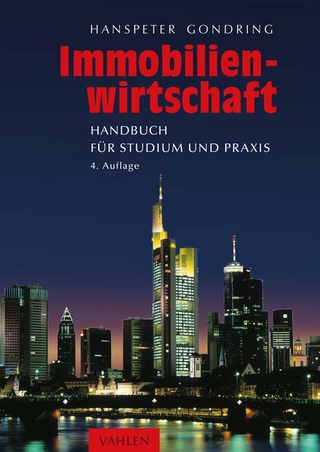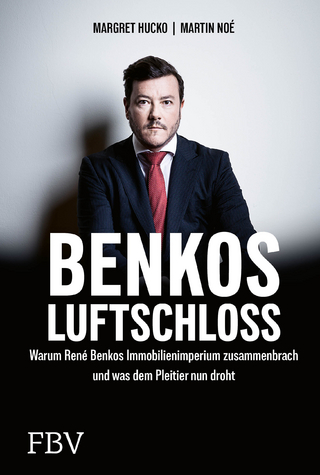
The Tragedy of Property
Polity Press (Verlag)
978-1-5095-2700-7 (ISBN)
Maxim Trudolyubov uses private property as a lens to highlight the most important features that distinguish Russia as a political culture. In many Western societies, private property has acted as the private individual’s bulwark against the state; in Russia, by contrast, it has mostly been used by the authorities as a governance tool. Nineteenth-century Russian liberals did not consider property rights to be one of the civil causes worthy of defending. Property was associated with serfdom, and even after the emancipation of the serfs the institution of property was still seen as an attribute of retrograde aristocracy and oppressive government. It was something to be destroyed – and indeed it was, in 1917.
Ironically, it was the Soviet Union that, with the arrival of mass housing in the 1960s, gave the concept of private ownership a good name. After forced collectivization and mass urbanization, people were yearning for a space of their own. The collapse of the Soviet ideology allowed property to be called property, but not all properties were equal. You could own a flat but not an oil company, which could be property on paper but not in reality. This is why most Russian entrepreneurs register their businesses in offshore jurisdictions and park their money abroad.
This fresh and highly original perspective on Russian history will be of great interest to anyone who wants to understand Russia today.
Maxim Trudolyubov is a Senior Fellow at the Kennan Institute and the Editor-at-Large of Vedomosti, an independent Russian daily. He is also Director of Research at the independent think tank InLiberty.ru, Moscow, and a contributing opinion writer for The New York Times International Edition.
Acknowledgements
Foreword - Alexander Etkind
Introduction: The Tragedy of Property
Chapter 1. The Entrance
1. Homeless people
2. From city dwellers to citizens
3. Reflected modernity
4. The capital of succeeding generations
Chapter 2. The Fence: Russian Title
1. Good fences make good neighbours
2. The permanence of the fence
3. Life without property rights
4. Russian title
Chapter 3. Behind the Fence: the Privatization of Utopia
1. Private palaces
2. The privatization of Utopia
3. The birth of private life
4. The Dutch carpenter’s house
Chapter 4. Private Property: My Home Is My Castle
1. The myth of Sparta
2. The domus of our forebears
3. Mine and ours
4. Life, liberty and property
5. Christianity and Utopia
6. Utopia without property
Chapter 5. Territory: Ambitions of Colonialism and Methods of Subjugation
1. Yermak the Conquistador
2. Stewardship and extraction
3. A natural resource irony of history
Chapter 6. The Lock on the Door: the Priority of Security
1. The collapse of monarchy in the West
2. Success in the East
3. Control as the top priority
4. Security as a threat
Chapter 7. Labourers: Moral Economics and the Art of Survival
1. The plough, the scythe and the axe
2. Moral economics
3. The commune against the private farmer
4. Dictatorship of the collective
Chapter 8. Masters: the Tragedy of Domination
1. Owners and rulers
2. ‘Let not the nobility be dispossessed of their estates without due process of law’
3. The birth of free people
4. Traduced and sacred law
5. The attempt to share
Chapter 9. Architecture, Happiness and Order
1. The project we live in
2. Stalin’s orders
3. Khrushchev’s social revolution
4. Happiness and order
5. Russian order
Chapter 10. Our Half-built Home
1. Favour from the tsar
2. Property without the market
3. A market without property
Chapter 11. Two Options: Finish Building the Home, or Emigrate
1. Property without property rights
2. Democracy without the rule of law
3. Law enforcement without the rule of law
4. The open door
Afterword
Notes
Index
| Erscheinungsdatum | 25.08.2018 |
|---|---|
| Verlagsort | Oxford |
| Sprache | englisch |
| Maße | 158 x 231 mm |
| Gewicht | 522 g |
| Themenwelt | Sozialwissenschaften ► Politik / Verwaltung |
| Wirtschaft ► Betriebswirtschaft / Management ► Rechnungswesen / Bilanzen | |
| Betriebswirtschaft / Management ► Spezielle Betriebswirtschaftslehre ► Immobilienwirtschaft | |
| ISBN-10 | 1-5095-2700-1 / 1509527001 |
| ISBN-13 | 978-1-5095-2700-7 / 9781509527007 |
| Zustand | Neuware |
| Haben Sie eine Frage zum Produkt? |
aus dem Bereich


